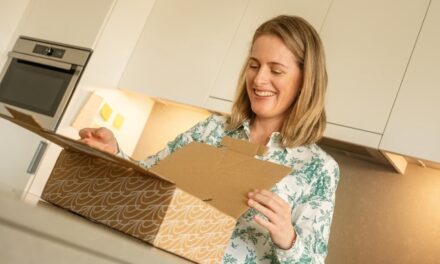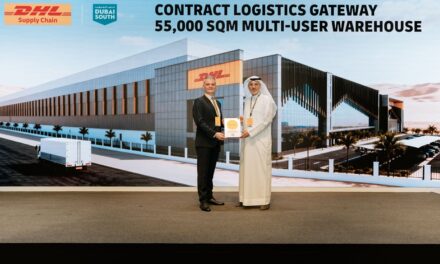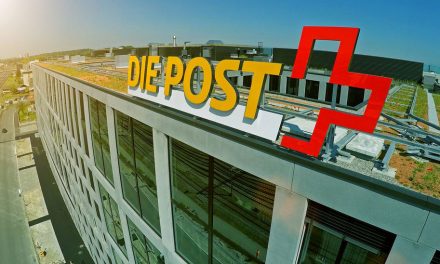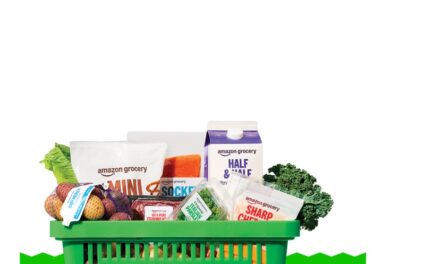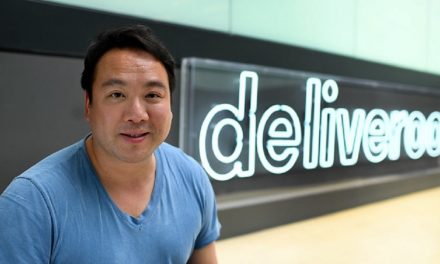
Swiss Post involved in pilot of autonomous vehicle meal deliveries
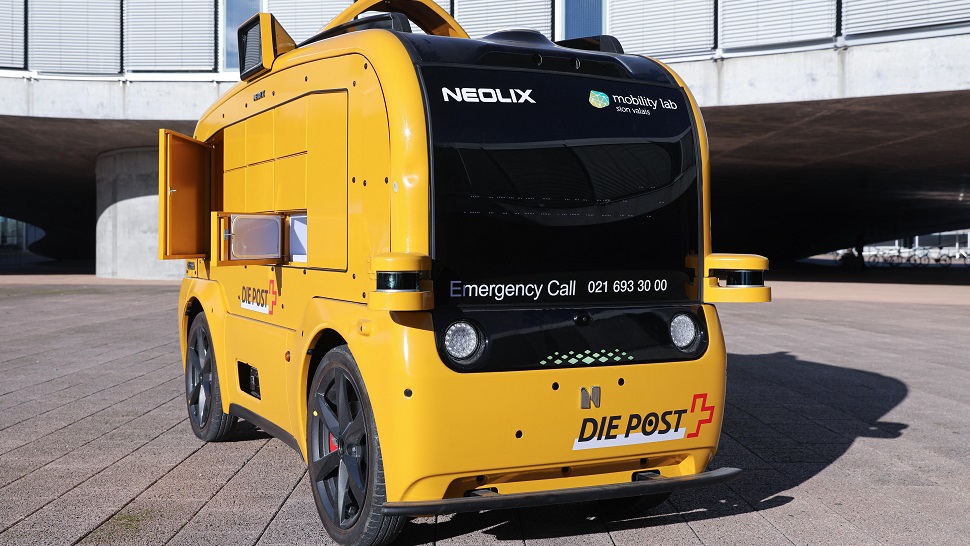
Starting today, EPFL’s Lausanne campus will serve as a testing ground for a high-tech delivery service that uses a self-driving van. A pioneering initiative that is set to develop further.
Most of the research conducted at EPFL takes place deep inside a laboratory, far from the public eye – but not all of it. That’s because the EPFL campus itself is a living lab. For around two months starting on 12 October, researchers will use this living lab to test out a self-driving delivery service. The delivery van will be hard to miss – bright yellow with giant screens on the front and back and small boxes on the sides. It will follow a route from the Esplanade to the Rolex Learning Center, Estudiantines student housing complex and EPFL Innovation Park.
The research project – called ADORE, for Autonomously Delivered Orders from Restaurants at EPFL – is designed to explore the various aspects of self-driving technology: robotics, computer science, mechanical engineering, telecommunications and interactions with road users. It’s being coordinated jointly by the EPFL Sustainability office and the Catering, Shops and Hotels unit, and involves using self-driving electric vehicles to deliver meals and other products. The pilot test will be rolled out over several weeks.
The electric-powered delivery van is 1 meter wide, just under 3 meters long and 1.8 meters high. It’s equipped with over 15 sensors, 5 cameras, a touch screen and a satellite antenna that employs new technology allowing the vehicle to be continuously located. It can’t carry passengers, but can carry food and other goods in its 11 side boxes, which are locked with a code. Although the van can theoretically travel at up to 50 km/h, its speed will be capped at 6 km/h on campus and a student will always accompany it. The electric vehicle was designed by Chinese firm Neolix and has been made available for the pilot test by Swiss Post, the delivery experts.
A pilot test in three phases
The pilot test is scheduled to take place in three phases. The first will last around two weeks, during which the operators will familiarize themselves with the vehicle and the EPFL community will be informed about this newcomer to campus. The van will operate under its regular self-driving conditions on a route programmed into its navigation system; the route will span the Esplanade, Rolex Learning Center, Starling hotel and the Estudiantines. Stops with informative billboards have been set up at the planned delivery and presentation points. Members of the EPFL community will be able to learn more about this new service at these points from Monday to Thursday from 11am to 1pm, when they will be able to play a guessing game to win small prizes.
The second phase will also last two weeks and will entail delivering meals to a test group of users. The van will pick up meals independently (but with a student closeby) at the Takinoa restaurant in the Rolex Learning Center and deliver them to the Esplanade, Starling hotel, Estudiantines and Innovation Park. Users can select a delivery time and place, and when the van is around 300 meters from the stop, it will send a text message containing the code for opening the box where the meal is stored. Another text message will be sent out when the van arrives at the stop. Users can put their dirty dishes from the previous day back in the box. This phase is intended to test out the technical components of the service (e.g., the systems for managing orders, pick-up and delivery locations, and delivery times) and evaluate the overall user experience.
A pioneering venture
If the first two phases go well, the service will be expanded in the third phase to the entire EPFL community, and may include other products besides food. “Our campus is a genuine living lab, and we wanted to use that opportunity to test out a novel transportation and delivery system while promoting healthier, locally sourced food, in association with our project partner,” says Luca Fontana, who is managing the EPFL Sustainability office’s role in the initiative. Other research teams may join the venture (from EPFL or another research institution) to test out related technology such as for optimizing the van’s trajectory, enhancing the security of data transfer, analyzing images or promoting the acceptance of autonomous systems.
However, it’s still early days and challenges remain. Self-driving vehicles were already tested on the Ecublens campus in 2015, but the research team had to get new approval from public officials for this project. Depending on the outcomes of the various phases, the pilot test could last between two and four months.

